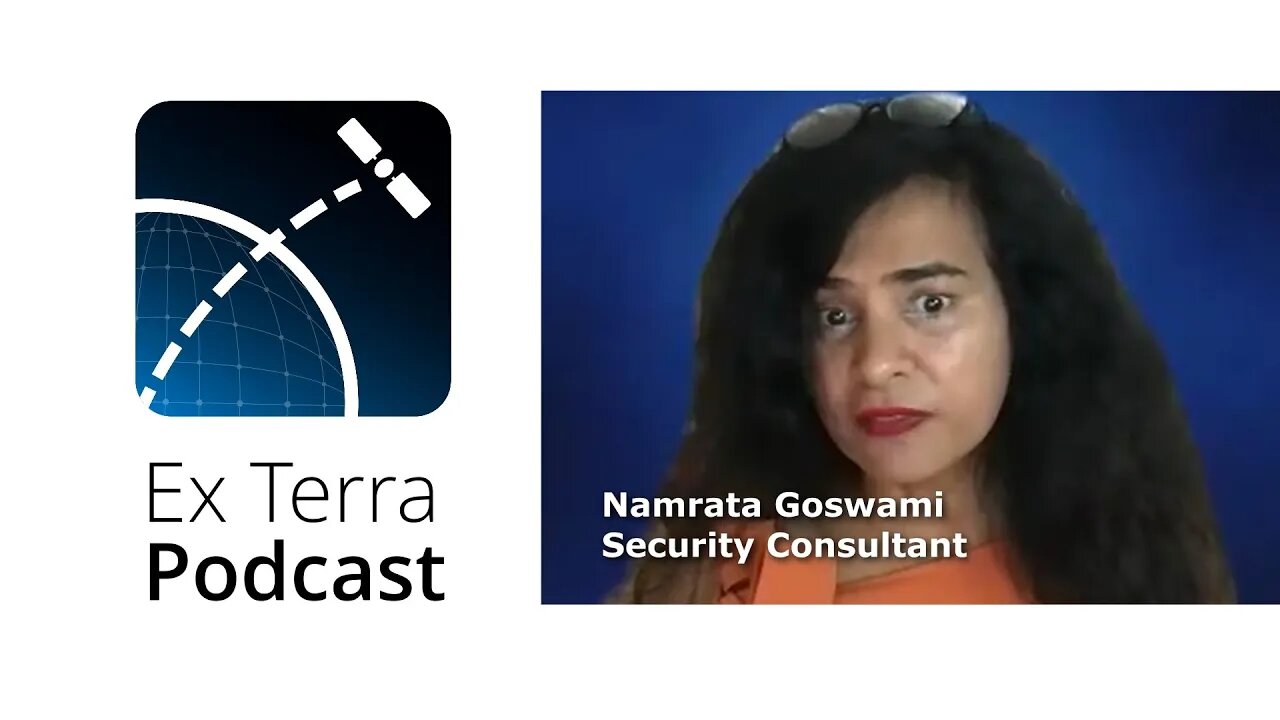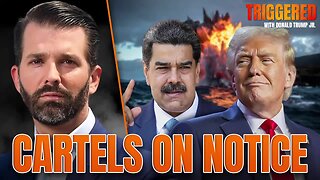Premium Only Content

Namrata Goswami: Russia and the Space Economy
On this edition of The Ex Terra Podcast, Tom Patton talks with Global Security Consultant Dr. Namrata Goswami concerning US-Russia policy and how it ties into space commerce. This is the first in a series of three podcasts with Dr. Goswami, looking at our relationships with Russia, China and India related to space commerce.
On Sunday, Russia lost its Luna 25 spacecraft when it crashed while attempting to land on the surface of the Moon. The country is consumed with its war in Ukraine, and it has openly stated that it plans to leave the International Space Station partnership in the next few years, and has been collaborating with China on potential joint space exploration. Still, a Russian Cosmonaut will fly to the ISS on the Crew-7 mission scheduled to launch early Friday morning.
Effect of US-Russia Policy on Space Commerce
So how does US-Russia policy affect space commerce, and is there an analog to Elon Musk or Jeff Bezos in Russia that could spur a commercial space industry in Russia? “Given the fact that Roscosmos likes centralization, do not want to give up power, very much dictates the organization of Russian (space) firms, I do not see someone like Elon Musk being able to succeed or innovate in that environment,” Dr. Goswami said.
According to Dr. Goswami, economic pressure including sanctions related to the war are forcing Russia to take more of a supporting role in its relationships with China and India as it relates to space. And India, with its recent signing of The Artemis Accords, which Russia opposed, is seen to be moving closer to the US when it comes to space. All of that and more will be discussed this week, and in the following two podcasts.
How does what happens in space affect your everyday life? The Ex Terra podcast is dedicated to introducing you to many of the interesting people involved in the commercial space industry, and taking you behind the scenes with many of the companies making significant contributions to the new space economy. The podcast is available on Anchor, Spotify, Apple Podcasts, Google Podcasts, Audible, Breaker, Overcast, Pocketcasts and Radio Public.
-
 LIVE
LIVE
megimu32
1 hour agoOTS: Ace Ventura & The Death of 90s Comedy
79 watching -
 LIVE
LIVE
We Like Shooting
14 hours agoDouble Tap 426 (Gun Podcast)
81 watching -
 LIVE
LIVE
SpartakusLIVE
2 hours agoNONSTOP Snipes, Rockets, and BICEPS = Monday MOTIVATION
218 watching -
 LIVE
LIVE
JakRazGaming
3 hours agoPlaying Minecraft with GameQuest1552, Rexmon, and JuicyKinnKandy! Stream 16
57 watching -
 24:02
24:02
The Quiet Part
4 hours agoOur Court Failed Us - In The Name of Tolerance
6.55K6 -
 LIVE
LIVE
LFA TV
22 hours agoLFA TV ALL DAY STREAM - MONDAY 9/8/25
792 watching -
 1:01:36
1:01:36
BonginoReport
4 hours agoNationwide Crime Spree Amid Trump Crackdown (Ep. 129) - Nightly Scroll with Hayley 09/08/2025
68.2K32 -
 36:23
36:23
MattMorseTV
2 hours ago $2.20 earned🔴Pritzker just GOBBLED UP Trump's BAIT.🔴
14.2K20 -
 11:52
11:52
TundraTactical
3 hours ago $0.12 earnedThIs Is The Most Dangerous Push For Gun Control You've Never Heard Of
7.51K -
 59:53
59:53
Donald Trump Jr.
3 hours agoProtecting Home Field: Cartels on Notice, Plus Biden Autopen Scandal Goes From Bad to Worse | Triggered Ep.273
48.3K62